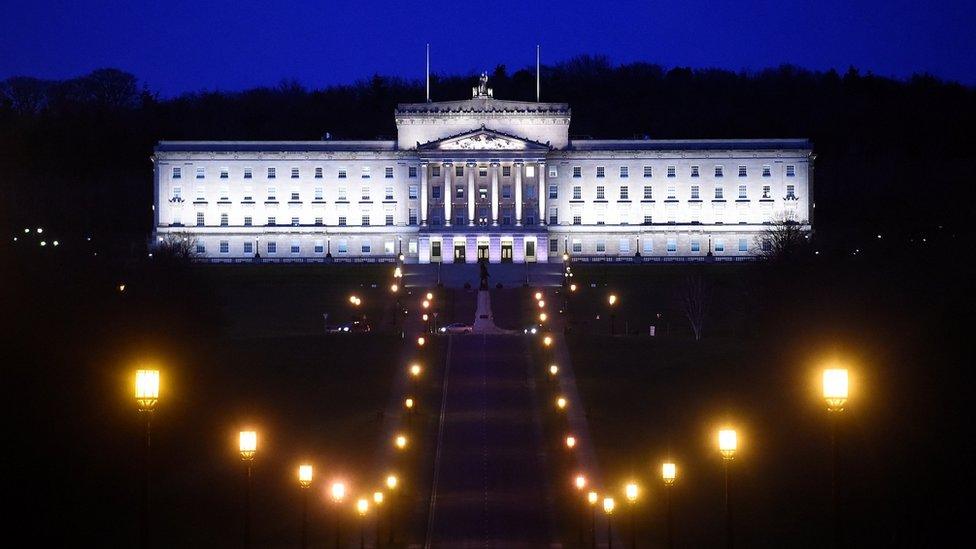Covid-19: new powers for 'stay at home' message
- Published
- comments

Home for Christmas: travellers arriving at Belfast International Airport
Health Minister Robin Swann says the Stormont executive's stay-at-home lockdown message will be made "legally enforceable".
It comes after a request he made to the executive to ensure people abide by new rules taking effect on Saturday.
It will mean people outside of their homes between 20:00 and 06:00 until 2 January, without a reasonable excuse, could be asked to return home.
Mr Swann said the PSNI would be given "additional" enforcement powers.
Initially the executive agreed the stay at home message would remain guidance rather than law.
However Mr Swann said on Tuesday ministers supported his proposal to toughen this up.
He told BBC Newsline: "The regulations published tonight will see that go into regulation, the executive agreed to that yesterday and it is being worked through by the departmental solicitors' office to ensure it is legally enforceable.
"From 8pm to 6am that week, the police will have additional powers to enforce things."
Isolation guidance
Meanwhile, anyone travelling into Northern Ireland who plans to stay for at least 24 hours will have to self-isolate on arrival, according to the restrictions.
The measures are contained in a newly published paper from the executive, external.
However, the paper says that people who routinely cross the border for essential purposes will not be subject to restrictions.
In Northern Ireland a further 21 coronavirus-related deaths were reported on Wednesday.
The Department of Health's death toll is now 1,240. There were also a further 787 cases of Covid-19 diagnosed.
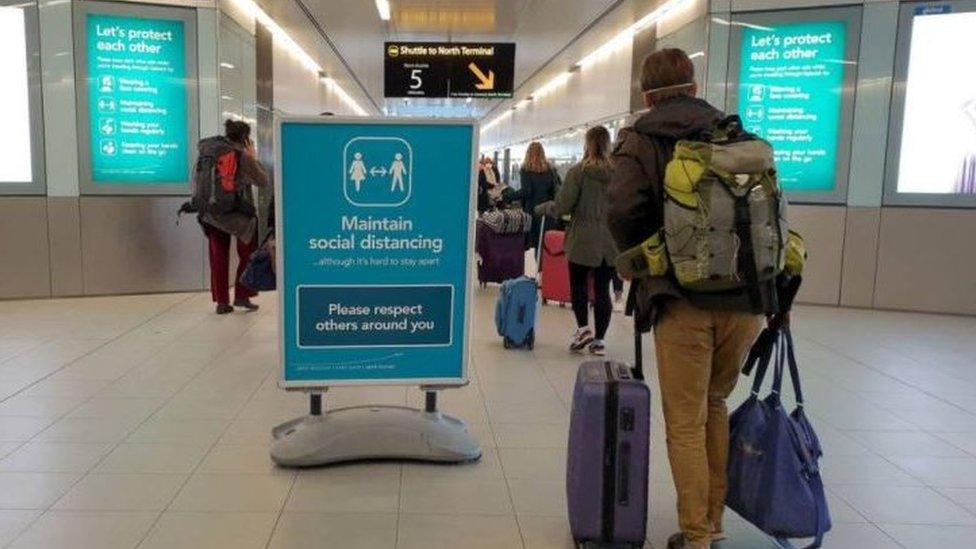
Travellers entering Northern Ireland for 24 hours must self-isolate for 10 days
The First Minister Arlene Foster has used her Christmas message to urge people to make "common cause" against the "enemy of Covid" but said there was also cause for hope.
"The United Kingdom has led the way in approving and providing the first vaccine," she said.
"Right now Northern Ireland has the highest vaccination rate in the UK and the world.
"More vaccines will follow, reinforcements in our fight against COVID."
What do the new travel restrictions say?
The paper due to be published by the executive details the week-long "stay-at-home curfew" coming into force in NI on Boxing Day as well as new guidance around travel.
The new guidance lists what qualifies as essential travel during that period of time including for work and health reasons.
The guidance states that people should only travel within Northern Ireland when it is absolutely necessary.
It says that essential travel includes:
Returning home, if you are away from your permanent residence
Work, when you cannot work from home
Accessing health and social care services
Accessing critical services
Fulfilling essential caring responsibilities
Buying essential goods or services in your local area
Exercising an animal or going to the vet
Fulfilling a legal obligation
Providing emergency response services.
On Sunday, the executive agreed so-called Christmas bubbles should be limited to one day.
The move followed action in England, Scotland and Wales on Saturday, cutting the previously agreed five days to just one.
Earlier, the executive decided a new six-week lockdown must be introduced from 00.01 GMT on 26 December, which will be reviewed after four weeks.
Northern Ireland's politicians are not in agreement on how to best handle the current level of risk.
Sinn Féin called for an all-Ireland-Great Britain travel ban and, in a late-night vote on Monday, the SDLP supported this.
However, Alliance, the DUP and UUP voted against.
Some 40 countries, including the Republic, have banned UK arrivals due to concerns about the new variant.
In the Republic of Ireland, anyone travelling from Britain must self-isolate for 14 days.
That means staying in their room - regardless of negative test results - from the date of their arrival.
There will be an increased Garda presence on Irish roads but road blocks will not be placed on the border to prevent travel between Northern Ireland and the Republic.
'Enhanced protection' for vulnerable
Northern Ireland's new restrictions will come on the same day that the Department of Health advised people who are classed as clinically extremely vulnerable (CEV) to no longer attend work if they cannot work from home.
It added that "people are free to make their own judgements... depending on the Covid-security of their working environment".
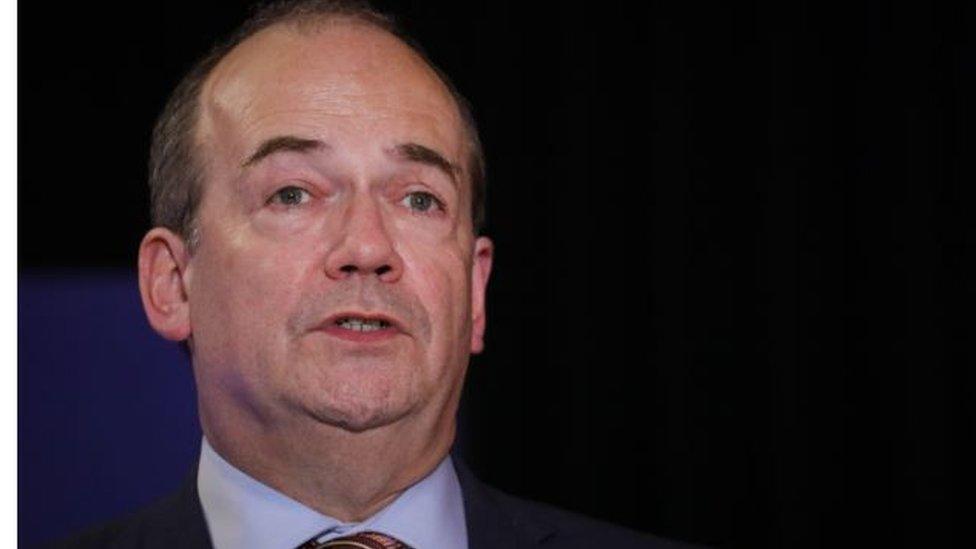
Dr Michael McBride stressed this was not a return to shielding
Chief medical officer Dr Michael McBride said: "This strengthened advice is intended to offer enhanced protection from Covid-19 to the most vulnerable people in our society.
"It is not a return to shielding as we knew it at the outset of the pandemic.
"We are not advising CEV people to stay permanently indoors, and I would encourage CEV people to continue to go outside for exercise, provided they observe social distancing when they do so."
The health minister has highlighted the updated guidance for visiting people in care homes over Christmas.
Covid-19 testing is available to one visitor per care home resident per week over the Christmas period and up to Friday 8 January 2021.
More details are available on the Department of Health website, external.
Related topics
- Published22 December 2020
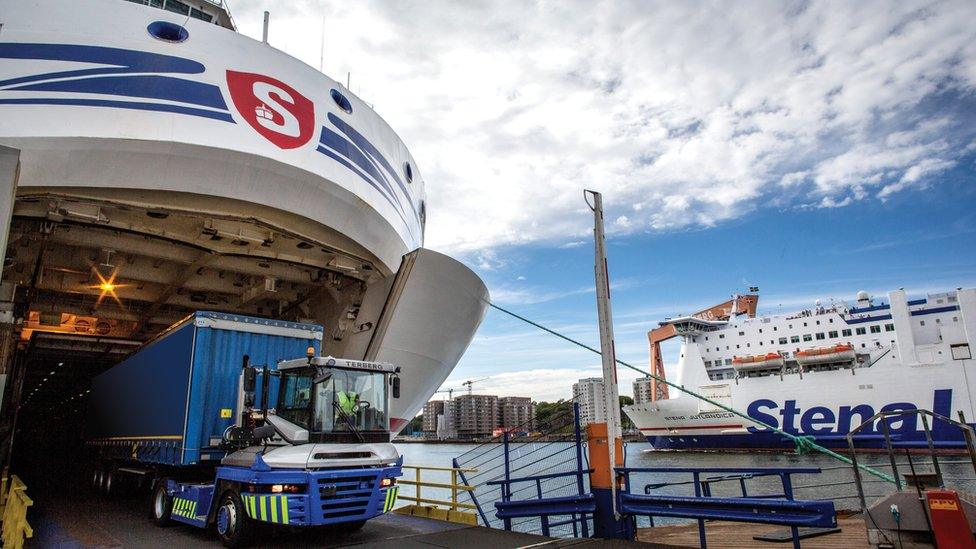
- Published8 January 2021
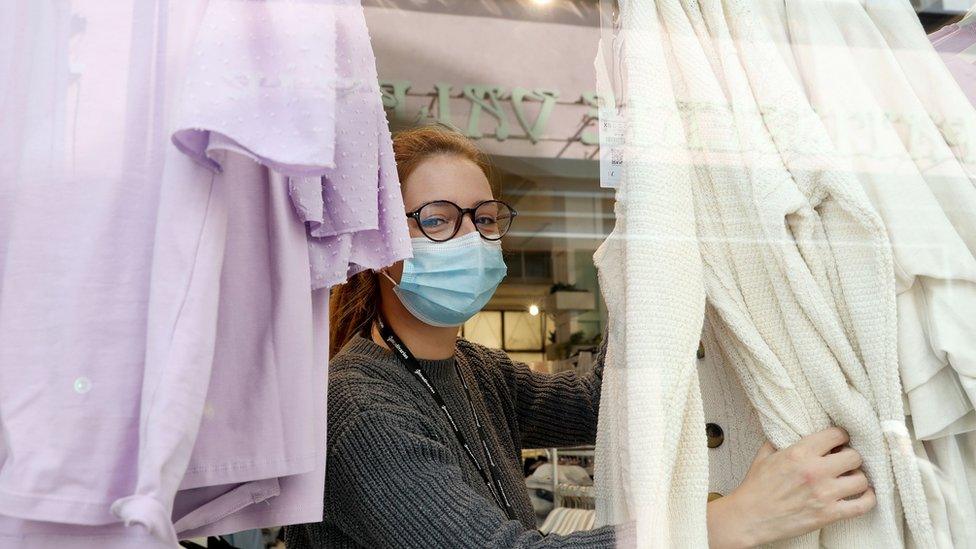
- Published22 December 2020
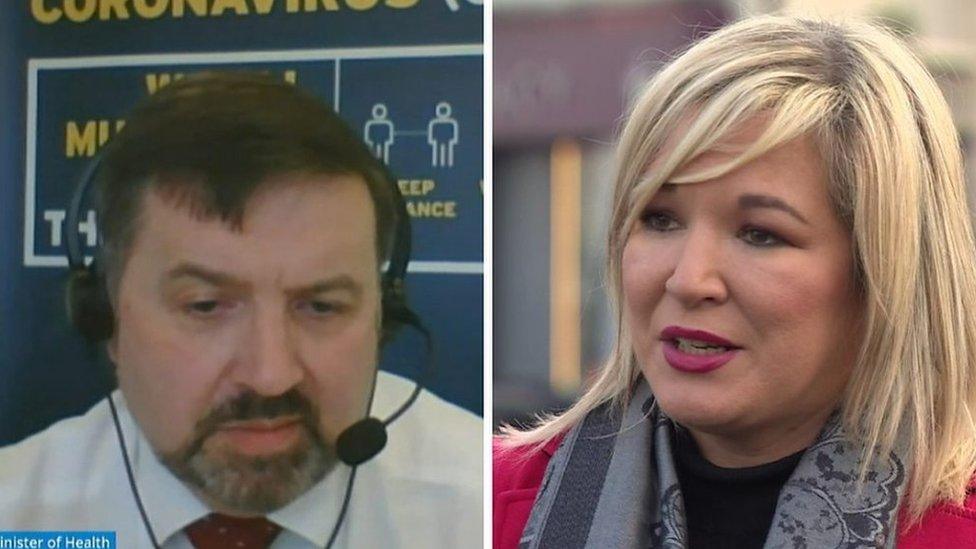
- Published29 July 2021

- Published20 December 2020
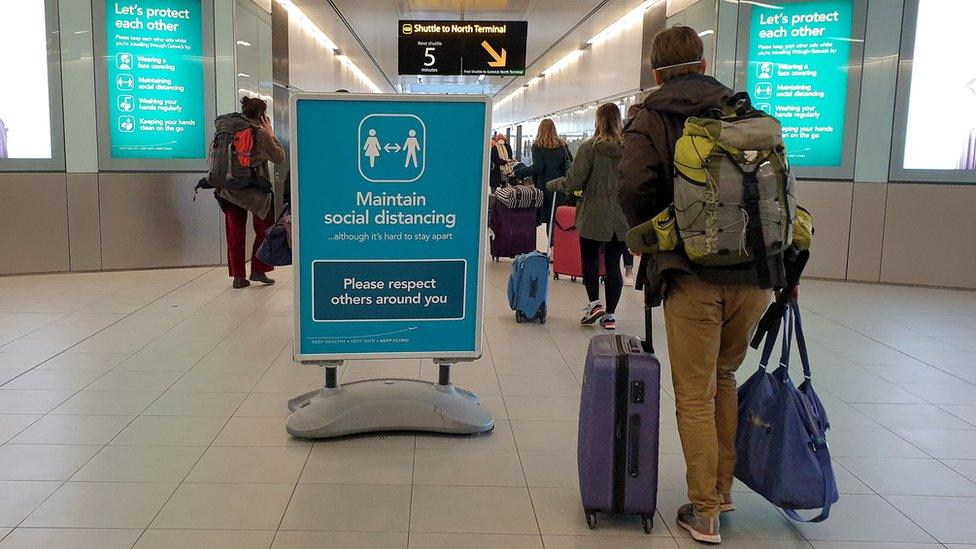
- Published20 December 2020
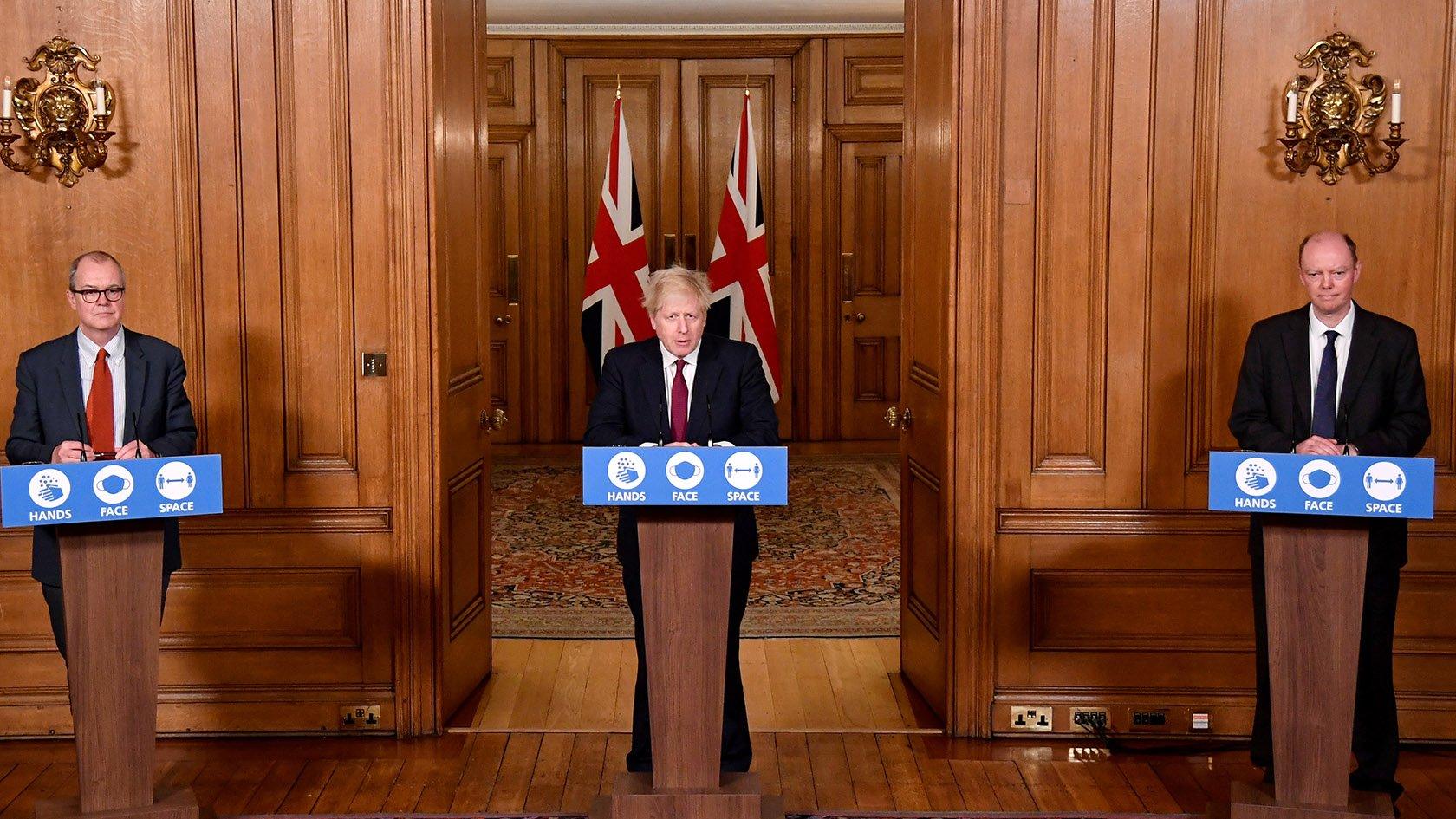
- Published20 December 2020
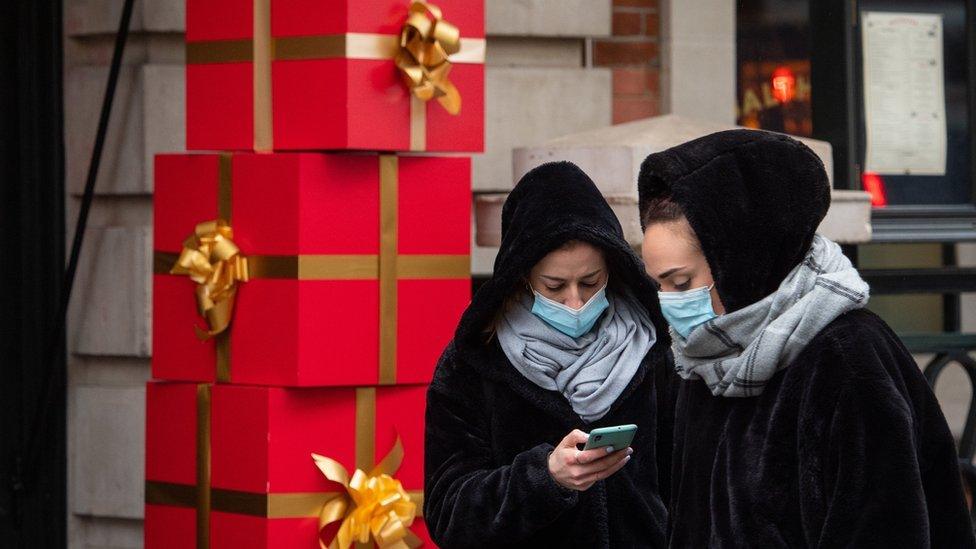
- Published20 December 2020
